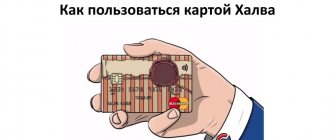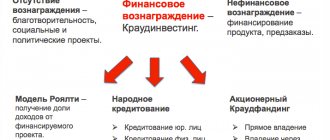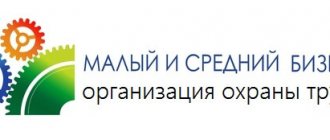Regulations on labor veterans of the Russian Federation
The title “Veteran of Labor” itself arose a long time ago, in 1974, during the heyday of the Soviet Union.
Veteran of labor in the USSR
This title was received as a reward by citizens who demonstrated success in their work over a long career, 20 years for women and 25 for men .
It was simply a moral incentive, evidence that honest work is honorable and worthy of respect. He was not entitled to any privileges or advantages in material terms; there were no monetary payments or benefits of any kind.
Simply, in a solemn atmosphere, a person was given a badge (or a medal with a certificate), kind words were said - and that’s all. This was done not only at the state level, but also at enterprises, both industrial and agricultural, and in various departments.
Any collective farm or factory could come up with a medal with an original design and present it to worthy employees who have worked at this enterprise for 10-15 years. And if a person worked in one place for 25 years or longer, then he was awarded even more honorary titles and badges.
These signs usually took the form of a medal with a corresponding inscription, and certificates were attached to them.
And only in 1995, when the Soviet Union had already collapsed, Federal Law No. 5-F of January 12, 1995 was adopted, which was called “On Veterans,” and benefits for veterans already appeared there.
It was in effect until 2005, and it clearly described how and to whom the title “Veteran of Labor” could be awarded, what specific benefits were given to the holders of this title and how they were financed.
The responsibility to provide the benefits prescribed by law lay with the federal budget, and citizens had a clear idea of what exactly they would receive if they were recognized as labor veterans.
Labor veteran in the Russian Federation, since 01/01/2005
Federal Law No. 122 treated labor veterans harshly at the time; it caused great unrest in society. This is the notorious law “On the monetization of benefits,” which transferred the provision of benefits to labor veterans to the jurisdiction of regional authorities.
This not only lowered their status, but also called into question the actual receipt of benefits: everyone understands that the capabilities of the regions in terms of resources are significantly inferior to the federal budget. Moreover, regional authorities were given the opportunity to independently determine the content of benefits and their monetary compensation - of course, based on their capabilities.
It turned out that the privileges of labor veterans in some regions remained at an acceptable level, while in others they were shamelessly curtailed, even to the point of being practically abolished.
Veteran of labor in the Russian Federation, since 07/01/2016
According to the amendments introduced to Federal Law No. 5-FZ, Art. 7, some wording was retained from the old edition, that is, veterans still include:
- persons who already have the title “Veteran of Labor”;
- those who had to work as children during the Second World War, provided that the total work experience of these citizens is 35 years or more for women, 40 or more for men;
- those who at one time received the honorary title of the RSFSR, USSR or Russian Federation, indicating conscientious work; these may be medals or orders of these states, as well as departmental insignia.
From July 1, 2020, after the adoption of the updated version of Law No. 5-FZ, Art. 7, the right to receive the title “Veteran of Labor” was additionally received by:
- Citizens who were expressed gratitude by the President of the Russian Federation or awarded a Certificate of Honor from the President of the Russian Federation.
- Persons who have received insignia for good service or work within the department, provided that they have worked in the relevant industry for at least 15 years, with a total experience of at least 20 years for women and 25 for men.
When the provisions of the amended law came into force, the regions were tasked with bringing their own legislation—acts affected by these provisions—into compliance with the Federal Law.
Law No. 5-FZ also contains articles dedicated to ensuring that federal policy truly ensures benefits and preferences for labor veterans.
Thus, it was proposed to find the necessary funds, despite the desire of the regions to curtail their social programs aimed at supporting labor veterans. In addition, there is an urgent need to create units focused on working with veterans.
New categories of citizens fall under the status of “Veteran of Labor”
“Veterans of Labor” may be added to Russia
People who have worked for a long time in the Far North or in equivalent areas are offered the title “Veteran of Labor” even if they do not have ministerial diplomas or medals. To do this, men will need to have 35 years of work experience, and women - 30.
Parliamentarians plan to consider the corresponding bill in September and, if adopted, the innovation could affect residents of 23 regions. The LDPR Duma faction proposes to go further and introduce a bill that would give the right to receive the title “Veteran of Labor” to all citizens whose working experience is 45 years for men and 40 years for women. What is already due to labor veterans and how to obtain this title, the Parliamentary Newspaper looked into.
What are the rules now?
The honorary title “Veteran of Labor” has been awarded since 1995. To receive it, women must have at least 20 years of work experience, men must have at least 25 years of service, or the years of service required for a pension, as well as special labor merits, which must be confirmed by one of the awards listed in the Law “On Veterans” . This is an order, medal or honorary title of the USSR or the Russian Federation, a certificate of honor or gratitude from the president, or an insignia issued by the relevant federal ministry, service or agency.
Each executive body has only one insignia, which gives the right to be awarded the title “Veteran of Labor”. For example, the Ministry of Health and the Ministry of Culture issue certificates of honor to doctors and artists, and the Ministry of Transport issues the badge “Honored Transport Worker of Russia.” Only those who started working as a child during the Great Patriotic War and have at least 40 years of experience for men and 35 years for women can receive the title without having any awards.
In addition, the constituent entities have the right to issue veteran certificates of regional significance, for example, “Veteran of Labor in the City of Moscow.” But, having become a regional labor veteran, when moving to another region or region, a person loses the right to the benefits that he had in his small homeland.
Northerners - “Veteran of Labor” for working in harsh conditions In July, deputies and senators introduced a bill to the State Duma that provides for special conditions for those who have worked in the North for many years. This is especially important for them - after long work in harsh conditions, they often move to more climate-friendly regions of the Russian Federation and, accordingly, lose the right to enjoy the social benefits that they received with the title in their Northern region, explained the co-author of the bill, Deputy Chairman of the State Duma Committee on regional policy and problems of the North and Far East Oksana Bondar.
Therefore, legislators proposed to include in the law an additional basis for assigning the title “Veteran of Labor” at the federal level to citizens who have worked for a long time and conscientiously in organizations in the Far North and in equivalent areas. To do this, workers will only need to have work experience: for men no less than 35 years, and for women no less than 30. No medals or certificates will be needed.
If the law is passed, northerners who have worked for many years in harsh conditions will be able to take advantage of preferences, even if they decide to go somewhere warmer. There are about two hundred regions of the Far North and equivalent areas in Russia, and they are located in 23 regions of the country, so the innovation will affect a considerable number of people.
Initially, the initiative was put forward by the Magadan Regional Duma. Regional deputies proposed to grant the right to receive the title to those who have worked in the Far North and equivalent regions for 45 years for men and 40 for women, said Elena Bibikova, co-author of the bill, Deputy Chairman of the Federation Council Committee on Social Policy. But senators and deputies decided to reduce the requirements and introduced an amendment to the Law “On Veterans”, which provides for 30 years of experience for women, and 35 years for men.
Bibikova noted that the new norm does not apply to pension legislation, and it can be considered as an additional benefit to the existing ones for northerners.
The authors of the bill were Vice-Speaker of the State Duma Alexey Gordeev, Vice-Speaker of the Federation Council Galina Karelova, Chairman of the House of Regions Committee on Social Policy Inna Svyatenko, Deputy Chairman of this Committee Elena Bibikova, Deputy Chairman of the State Duma Committee on Regional Policy and Problems of the North and Far East Oksana Bondar and Deputy Galina Danchikova. They plan to consider the initiative in the first reading at one of the plenary sessions of the State Duma during the autumn session.
The relevant State Duma Committee on Labor, Social Policy and Veterans Affairs had a positive attitude towards the bill. In July, when it was submitted to the State Duma, the head of the Duma Committee on Labor, Social Policy and Veterans Affairs, deputy leader of the LDPR faction Yaroslav Nilov supported the idea and emphasized: “The most important thing is that at the regional level labor veterans are truly provided with additional support measures. So that this title is not just a declaration, but tangible support for those who earned it with their hard work.”
Benefits should not “burn out” when moving Meanwhile, at the end of the summer holidays, deputies from the LDPR announced their own initiative, which proposes to assign the title to all citizens who have a work experience of at least 45 years for men and 40 years for women, regardless of whether They have state awards and departmental insignia. This was reported by the press service of Yaroslav Nilov. The bill was also authored by Deputy Speaker of the Duma Igor Lebedev, Chairman of the Committee on Physical Education, Sports, Tourism and Youth Affairs Boris Paikin, First Deputy Chairman of the Defense Committee Alexander Sherin, and deputies Dmitry Svishchev and Nikita Berezin.
The developers note that, for example, in the Kursk, Oryol, Kirov and Ryazan regions, to obtain a regional-level title in the absence of state awards or departmental insignia, a long work experience is required - 45 years for men and 40 years for women. “When these persons move to other constituent entities of the Russian Federation, where the establishment of such a title is not provided, they are deprived of social support measures. This situation causes enormous social tension among older citizens who have worked conscientiously for more than 40 years,” the explanatory note says. Therefore, parliamentarians proposed establishing the title “Veteran of Labor” with the same length of service as in the regions, but at the federal level.
What payments and compensations are due to labor veterans?
A labor veteran who has received a federal certificate has the right to benefits, the type and amount of which are established by the leadership of the region where he lives.
According to the Law “On Veterans” at the federal level, it is stipulated:
pensions, cash benefits; receiving a monthly cash payment; provision of residential premises; compensation for expenses for living quarters and utilities; provision of medical care and prosthetic and orthopedic care. Specific amounts and options for providing benefits depend on the region.
In Moscow, the monthly payment for labor veterans, starting from pre-retirement age (55 years for women and 60 for men), is 1056 rubles. They are entitled to a 50 percent discount on the cost of occupied residential premises, utilities and garbage removal, and compensation for paying for a home telephone. They can also get dentures for free, receive orthopedic shoes and other prosthetic and orthopedic products, and travel on city public transport and commuter trains.
In St. Petersburg, the monthly payment, taking into account indexation for 2020, is 947 rubles. It also provides for payment of half the cost of housing and utilities, the right to purchase a public transport ticket at a reduced price for pensioners, free travel on commuter trains and discounts on commuter buses.
In the Magadan region, labor veterans retain services in the medical organizations of the region to which they were attached before retirement, they are compensated for half the cost of housing and utilities, paid 682 rubles per month, taking into account indexation for partial compensation of travel expenses on suburban and intercity buses and communication services. And disabled veterans are entitled to a 50 percent discount on prosthetic and orthopedic products.
In the Belgorod region, they provide support measures such as 50 percent compensation for fees for the maintenance and repair of housing, utilities and the use (renting) of residential premises within the limits of regional standards, as well as a 50 percent discount on the cost of travel on suburban railway transport.
In the Krasnodar Territory, labor veterans can count on compensation for half the cost of communal services and housing costs and preferential prices for travel tickets: for a city bus - 340 rubles, a trolleybus - 430 rubles, a tram - 430 rubles, for a tram and trolleybus - 540 rubles, for a trolleybus and bus - 540 rubles, for tram and bus - 540 rubles, for tram, trolleybus and bus - 670 rubles. In addition, they are given six coupons each month to purchase tickets at a 50 percent discount.
Documents that will be needed for registration
The title “Veteran of Labor” must be obtained independently. To do this, you should contact the MFC or local social security authority. You can also submit an application on the portal of state and municipal services.
The application must be accompanied by:
passport;
3x4 photo; documents of merit (depending on the basis): certificate of awarding an order or medal; a document confirming the award of a departmental distinction in labor or a certificate of honor or gratitude from the President of the Russian Federation; a document conferring an honorary title of the USSR or the Russian Federation; documents on experience (depending on the basis): a work book or a certificate from an archival organization - to confirm the presence of the necessary work experience and the start of work as a minor during the Great Patriotic War (the period from June 22, 1941 to May 9, 1945 is taken into account, with the exception of period of work in the temporarily occupied territories of the USSR); a certificate from the Pension Fund branch confirming a work experience of at least 40 years for men and 35 years for women; a document confirming the length of service required to grant an old-age or long-service pension. Departmental awards that give the right to be awarded the title “Veteran of Labor”
Ministry of Health of the Russian Federation - Certificate of Honor from the Ministry of Health of the Russian Federation Ministry of Culture of the Russian Federation - Certificate of Honor from the Ministry of Culture of the Russian Federation Ministry of Education and Science of the Russian Federation - Badge of Distinction from the Ministry of Education of the Russian Federation (until July 21, 2020) Ministry of Natural Resources and Ecology of the Russian Federation - Badge of Honor "For Distinction in Service" Ministry of Industry and Trade of the Russian Federation - Medal "Labor Valor" Ministry of Digital Development, Communications and Mass Communications of the Russian Federation - Title "Master of Communications"
Ministry of Agriculture of the Russian Federation - Certificate of Honor from the Ministry of Agriculture of the Russian Federation Ministry of Sports of the Russian Federation - Badge of Honor "For Merit in the Development of Physical Culture and Sports" Ministry of Construction and Housing and Communal Services of the Russian Federation - Certificate of Honor from the Ministry of Construction and Housing and Communal Services of the Russian Federation Ministry of Transport of the Russian Federation - Badge “Honorary Worker of Transport of Russia” Ministry of Labor and Social Protection of the Russian Federation - Certificate of Honor of the Ministry of Labor and Social Protection of the Russian Federation Ministry of Finance of the Russian Federation - Badge "Excellence in Financial Work" Ministry of Economic Development of the Russian Federation - Certificate of Honor of the Ministry of Economic Development of the Russian Federation Ministry of Energy of the Russian Federation - Medal "For merits in the development of the fuel and energy complex" II degree
Federal Antimonopoly Service - Medal "For Distinction in Service" II degree
Federal State Statistics Service - Honorary title “Honorary Worker of State Statistics”
Federal Service for Supervision of Consumer Rights Protection and Human Welfare - Badge “Honored Worker of Rospotrebnadzor”
Federal Service for Environmental, Technological and Nuclear Supervision - Medal named after. Jacob Bruce
Federal Agency for State Reserves - Honorary title “Honorary Employee of the State Material Reserve System of the Russian Federation”
Federal Agency of Scientific Organizations - Badge “For Merit in the Development of Science”
Federal Agency for National Affairs - “For contribution to the strengthening of the Russian nation”
Ministry of Internal Affairs of the Russian Federation - Badge "Honorary Officer of the Ministry of Internal Affairs"
Medal of the Ministry of Internal Affairs of Russia "For Labor Valor"
Medal of the Ministry of Internal Affairs of Russia "For impeccable service in the Ministry of Internal Affairs"
Medal of the Ministry of Internal Affairs of Russia "For Distinction in Service" I and II degrees
Ministry of the Russian Federation for Civil Defense, Emergency Situations and Disaster Relief - Medal "For Impeccable Service"
Medal "For Distinction in Military Service"
I, II degrees
Medal "For Distinction in Service"
I, II degrees
Badge “Honorary Employee of the Ministry of Emergency Situations of Russia”
Badge "Veteran of the Ministry of Emergency Situations of Russia"
(draft order of the Ministry of Emergency Situations of Russia “On departmental insignia of the Ministry of Emergency Situations of the Russian Federation for Civil Defense, Emergency Situations and Disaster Relief, giving the right to confer the title “Veteran of Labor” and amendments to the order of the Ministry of Emergency Situations of Russia dated December 6, 2010 No. 620
“On departmental insignia of the Ministry of the Russian Federation for Civil Defense, Emergency Situations and Disaster Relief”)
Ministry of Defense of the Russian Federation - Medal "For Labor Valor"
Medal "For Distinction in Military Service" 1st, 2nd class
Federal Agency for Special Construction - “Veteran of Special Construction of Russia”
Ministry of Justice of the Russian Federation - Medal “Veteran of the Ministry of Justice of the Russian Federation”
Federal Bailiff Service - Medal "Veteran of the Federal Bailiff Service"
Federal Security Service of the Russian Federation - Certificate of Honor of the FSB of Russia
Medal of the FSB of Russia "For Distinction in Military Service" II or I degree
Medal of the Federal Security Service of Russia "For Distinction in Labor"
Federal Security Service of the Russian Federation - Badge “For honor and dignity in service to the Fatherland”
Badge “25 years of impeccable service”
Medal "For Distinction in Military Service"
II or I degree
Medal "For Distinction in Labor"
Federal Archival Agency - Badge "Honorary Archivist"
Federal Service of the National Guard Troops of the Russian Federation - “Honorary Officer of the Russian Guard”
Medal "Veteran of Service"
Medal "For Merit in Labor"
Medal "For Distinction in Service" 1st class
Documents required to obtain the title “Veteran of Labor”
Labor veterans are of federal and regional significance. Law No. 5-FZ obliges regions in Article 22 to independently create a list of preferences intended for labor veterans.
However, when summarizing all federal legislation, it becomes obvious that some benefits are common to all regions and are interpreted as federal. At the same time, there are also purely regional ones, which the subject of the federation establishes itself, and they operate only on its territory. A labor veteran of regional significance may qualify for these benefits.
Certificate of "Veteran of Labor"
To take advantage of the rights of a labor veteran, they must be properly registered. Having recognized the right of a citizen to this title, the executive body responsible for this area presents him with the “Veteran of Labor” certificate. It is this document that certifies the right to receive the required benefits and allowances.
Since such a document is subject to strict accountability, it must be protected, and in case of loss, you should contact the place where it was received and make an appropriate statement.
Medal "Veteran of Labor"
When the Veteran of Labor medal was awarded in the Soviet Union, citizens did not suspect that this item, at that time purely symbolic, essentially playing the role of a memorial sign, could many years later become a source of additional benefits.
Nevertheless, this is what happened. The presence of a person’s “Veteran of Labor” medal, received in the USSR or the RSFSR and confirmed by the appropriate certificate, is a full-fledged basis for conferring a similar title in the Russian Federation, with all the ensuing consequences.
In the USSR, such medals were awarded to children who worked during the Second World War; they were awarded to workers and collective farmers to commemorate their conscientious many years of work for the benefit of the Motherland. Often, workers retiring were celebrated in this way in order to somehow appreciate their services to their native enterprise.
Registration of a labor veteran with the help of State Services
Currently, you can submit the collected documents for awarding the title through the State Services portal. However, this opportunity is not available in all regions of the country!
First, you need to have an account on the portal with confirmation in any available way.
Next you need to select.
To submit an application, you need to scan and add all the required documents to the form:
After processing the application, a notification will be sent to your personal account indicating the time and place of issue of the veteran’s certificate.
Documents for obtaining the title “Veteran of Labor” of federal significance
Since now questions about labor veterans are under the jurisdiction of the social security authorities, this is where you should go to carry out this procedure.
A corresponding application from the citizen is submitted in paper form, which is interpreted into electronic form.
In this case, you must provide the following documents:
- an identity card or passport of a citizen of the Russian Federation, accompanied by a copy of this document certified by a notary;
- documents certifying the length of work experience - work book;
- all possible confirmations of insignia and awards assigned to a citizen;
- pensioner ID (if the person is already one) and SNILS;
- 2 photographs in a given format;
- a certificate in the required form, issued either at the place of work or at the Pension Fund.
The listed documents are accepted in the form of copies, but the originals must be provided for verification.
An important circumstance should be noted: the legislation allows you to register the status of a veteran even before the citizen actually retires, provided that all the grounds for this are available. However, it will be possible to take advantage of the benefits provided to a veteran only upon completion of his working career.
What is needed to obtain a title?
It is established by law that to confirm the status of “labor veteran” the following rules will be required:
Requirements for submitted documents
Regional authorities determine the list of documents required for registration of a labor veteran, including the requirements for the submitted documents.
It is best to contact the social security authorities to which the application will be submitted before submitting. A representative of this body will explain what documents need to be submitted, give an application form to fill out and a sample to fill out.
Usually presented:
- Photograph - it must be matte without a corner (2 pcs.).
- Passport of a Russian citizen and a full copy of it.
- Work record book and a photocopy of all its pages.
- A document confirming the overall work experience - a certificate from the Pension Fund, from the employer, an archival certificate, etc.
- Documents confirming awards or honorary titles.
The procedure for conferring the title “Veteran of Labor”
First, a citizen submits an application for awarding him the title “Veteran of Labor.” It is reviewed by a special commission created within the social protection authorities, based on the provided package of documents.
The legislation allows 30 days to make a decision; the citizen is informed about it within the next 5 days.
If the commission’s decision is positive, then the citizen is given a certificate conferring the status of “Veteran of Labor.” Now, from this very moment, he can enjoy all the benefits that federal legislation provides him.
Having received the certificate, the newly minted veteran of labor selects from the benefits for which he has the right to apply the necessary ones that are relevant to him, and draws up an application for their receipt.
Documents that give the right to benefits must be submitted at the place of residence, to the same social protection authorities.
At present, if you look at all subjects of the Russian Federation, no uniform rules have been developed for obtaining the status of a labor veteran. Without conflicting with federal legislation, the constituent entities of the Russian Federation are guided by their own regulations on this matter.
Infographics: “For articles by a labor veteran, you need...”
Differences by region are significant:
- often locally, departmental signs and awards are not considered the basis for a citizen to be awarded the title of labor veteran;
- in some places, on the contrary, the list of such grounds has been expanded to include donors, inventors and innovators;
- in some regions, to obtain the status of a labor veteran, it is enough only to have the required length of service, and it is not necessary to have awards.
But the procedure for obtaining the title is the same everywhere.
Required documents
Despite the fact that the law on labor veterans of the Russian Federation delegated the authority to decide what to use when assigning this title to regional authorities, the list of documents necessary for making a decision, as a rule, remains the same. As already mentioned, for this, a citizen must provide the following documents to his department of social security institutions:
- Russian passport;
- documents confirming years of work experience;
- awards that give the right to apply for the title of “Veteran of Labor of the Russian Federation” and, most importantly, documents that will confirm that they belong to him;
- photograph according to the established pattern.
It should be noted that different regions have different requirements for individuals applying for this title. In some regions of the country, certain insignia received during years of work in the USSR are not considered grounds for conferring this title, but in other regions, on the contrary, it is enough for people to have the required length of work experience and live in this area for a certain time. In any case, if you think that you deserve to bear the title of “Labor Veteran of the Russian Federation”, how to get it, you will be told at social security institutions, where you can familiarize yourself in detail with the requirements in your region.
How to get the title of “Veteran of Labor” without having any awards?
This is possible in two cases:
- At the regional level, in those constituent entities of the Russian Federation where awards are not recognized as a prerequisite for obtaining the title of labor veteran.
- At the federal level, if the citizen already has this title, which was previously obtained legally; most often this applies to the small category of citizens who began working during the Second World War and retained all the required documents.
In other cases that do not fit into the usual framework, it is sometimes possible to obtain such a title through the court.
Who is assigned a “labor veteran”?
The legislator has established who can be granted the status of “labor veteran”:
- A person who has a document confirming “Veteran of Labor” (certificate).
- A person who has been awarded orders or medals of the USSR (Russia).
- Persons who have honorary titles of the USSR (Russia) and letters of gratitude from the head of state.
- Persons who have letters of the head of state, as well as insignia of departments.
When establishing the title of “labor veteran,” great importance is attached to the employee’s length of service. More than 15 years of continuous work experience in a specific field is required. If it is not there, then the total length of service for men must be more than 25 years, and for women - more than 20 years.
The opportunity to obtain the status of “labor veteran” is also available to citizens who began their working career during the war before reaching adulthood. To obtain this title, a man must work for over 40 years. The law establishes the length of service required to receive the honorary title of labor veteran for a woman - over 35 years.
If a veteran is registered by a foreigner, then in order to obtain this title he will need to obtain Russian citizenship, even if he has a long work history. Work experience in another country can be accepted if there is an agreement between the CIS countries.
Important! In addition, to receive benefits as a veteran, you will need to retire.
Can a shock worker of communist labor become a labor veteran?
Many copies of this issue were broken at one time, and even today it is not difficult to find echoes of those disputes and clashes of opinions on the Internet.
In the end, the Supreme Court of the Russian Federation clarified the departmental insignia that ensure the right to receive the title “Veteran of Labor.”
The explanation presented a complete list of insignia in the work of various departments in the USSR, the RSFSR and the Russian Federation, and also listed all the bodies that had the right to establish such regalia. The result was an extensive list, but the “Drummer of Communist Labor” sign was not there.
It was established, as evidenced by the resolutions of the Presidium of the All-Union Central Council of Trade Unions of 1966 and 1969, by a joint decision of economic and trade union bodies, while the sign “Shock Worker of Communist Labor” was introduced as a moral encouragement for workers. But there was no wording indicating that it was a departmental award in the relevant Resolution of the Presidium of the All-Russian Central Council of Trade Unions.
The Supreme Court of the Russian Federation, after studying all aspects of the problem, decided that the “Drummer of Communist Labor” badge, on the grounds that it was interpreted as a special measure of moral stimulation and was awarded to citizens without reference to any specific department, cannot be considered a departmental insignia. Therefore, he was not included in the list of honorary badges of the USSR or the RSFSR, and since he is not on the list, then he cannot be considered a basis for conferring the title of “Veteran of Labor”.
What nuance should you take into account so that your application is not denied?
It follows from the norms of the law that an applicant for the title of labor veteran must have a departmental award, certificate of honor, gratitude or other paper confirming his long and conscientious work or service. This is the main document required by the social welfare department (formerly Social Security). Let us dwell on some of the nuances in which registration may be refused, even if documents for a labor veteran have been collected.
Please note: if a citizen has received status in one region, when moving to another subject of the Russian Federation, he risks losing it, since the rules for obtaining are set by regional authorities, and these rules may change.
Only orders, honorary titles and medals of the USSR or the Russian Federation, departmental awards, certificates of honor and gratitude from the President of the Russian Federation are considered as grounds.
Which icon doesn't matter? “Shock workers of communist labor” and owners of most badges are not entitled to a preferential category.
- Is it possible to somehow become a labor veteran without having any awards? According to federal law, an order, medal, gratitude, and departmental insignia are mandatory for obtaining the title “Veteran of Labor.” This title is now awarded only to federal subjects. Some follow federal law, others provide additional opportunities in the region. The only question will be the financing of benefits (federal or regional budget). But in general, this does not matter to citizens. The Moscow Government does not expand the list of grounds for obtaining titles, for example. And in the Sverdlovsk region you can already receive the title by being an Honorary Citizen or having the Insignia “For Services to the Sverdlovsk Region” or “Maternal Valor” of all degrees. There, the title is given if you have the title “Honorary Donor” and for active participation in the population census in 2002 and the agricultural census in 2006.
- Is it true that now only civil servants can receive a labor veteran (after all, only they have a chance to receive departmental awards)? Definitely not true. There are nuances whose awards can be taken into account when awarding the title “Veteran of Labor,” but a person can work in any field.
Social support measures for labor veterans
Veterans of labor in today's Russia feel real support from the state.
At the federal level
The list of benefits is as follows:
- free services in public clinics;
- free travel on public transport, this applies to all types throughout Russia;
- subsidy for payment of 50% of the apartment area;
- for housing and communal services, a labor veteran pays only half of the required price, a subsidy is allocated for the rest of the payment, while local tariffs and consumption standards appear in the calculations;
- a labor veteran has the right to a 50% discount when paying a subscription fee and some services in the field of television and radio;
- when performing dental prosthetics and repairing existing dentures, if a labor veteran applies to a state medical institution, he is not charged for the work - in the general case;
- leave for a working veteran of labor is provided at a time when it is convenient for him;
- There are tax benefits relating to real estate, personal income tax and tax deductions.
At the regional level
The availability of benefits at the regional level and their level directly depends on the possibilities of local financing.
Labor veterans in the regions may be provided with additional types of social support, namely:
- in many constituent entities of the Russian Federation, a monthly supplement to pensions from local authorities has been introduced, which is subject to indexation on a general basis;
- if the size of a veteran’s labor pension is less than the subsistence minimum for a given region, then he is entitled to a corresponding social supplement from the local budget;
- if a veteran does not receive a subsidy from the federal budget, then he can receive a regional one instead;
- labor veterans are provided with subsidies for medicines;
- holders of a pensioner's social card receive benefits, which are expressed in a 5% discount on such essential products as bread, sugar, milk, poultry, sunflower oil, eggs, stewed meat, and household goods;
- a 50% subsidy is also provided for the purchase of railway and water transport tickets during seasonal tariffs on suburban routes;
- other, including tax benefits in terms of transport and land taxes established by regulations of the constituent entities of the Russian Federation.
Labor veteran in Russia in 2020: latest news
In connection with the start of the sensational pension reform, in which the retirement age begins to increase in the Russian Federation on January 1, 2020, from the New Year all active pensioners receiving an insurance pension will receive a serious increase in pensions.
Here are the main news of 2020:
- Increasing salaries for security forces;
- Increase in minimum wage;
- Increasing military salaries;
- Increasing salaries for public sector employees (doctors, teachers);
- Indexation of insurance and social pensions;
- Increasing social benefits.
Who can receive an honorary title?
To obtain the title “Veteran of Labor”, strict fulfillment of two mandatory conditions is required:
- Having a certain work experience (25 years for men, 20 for women);
- The candidate has awards of the established type; it does not matter whether they were issued in the Russian Federation or in the USSR.
The length of service takes into account the insurance period confirmed by information from the Pension Fund, that is, the number of years during which the employer made contributions to the Pension Fund. As well as other periods that are equated to them and reflected in Article 11 of Federal Law No. 173-FZ “On Labor Pensions”. Thus, the system of accounting for length of service for assigning a veteran title is absolutely the same as for calculating pension benefits.
Awards of the established type are medals, orders, commendations and certificates of honor, departmental badges issued on behalf of the President, in rare cases the Governor, or the Ministry. It is also worth remembering that awards issued in honor of professional holidays on behalf of companies and enterprises, military units, for participation in sports competitions, competitions and for obtaining an academic degree are not taken into account.
There is a category of citizens who have the right to receive the title “Veteran of Labor” even without the above awards - these are those who began their working career during the Second World War before they reached adulthood. At the same time, strict requirements for work experience are still taken into account: 35 years for women and 40 for men, in the presence of appropriate documents confirming and proving work activity not in the occupied territories of the USSR.
Photo: publicdomainpictures.net
Decision on awarding the title
There is a set period during which a specially authorized commission verifies the legitimacy, compliance and sufficiency of the submitted documents. In each region, this period is set individually. Next, the commission makes conclusions about the sufficiency of the grounds for making a positive or negative decision. And it sends a five-day notice to the applicant, which reflects its decision: to assign the title or to refuse. In the second case, the notification must contain motivated and clear reasons for the refusal. On what basis can a negative decision be made:
- The applicant did not provide documents confirming that the requested awards belonged to him and not to a third party;
- The awards presented do not meet the requirements;
- Insufficient (short) length of confirmed work experience.
The period for making a decision can range from 10 to 30 days depending on the region of residence. If the applicant has doubts about the legitimacy of the decision to refuse to assign a title, the citizen has every right to send a complaint to various authorities, starting with the head of the regional social service, then to the Ministry of Social Policy, and, as a last resort, to the judicial authorities.










